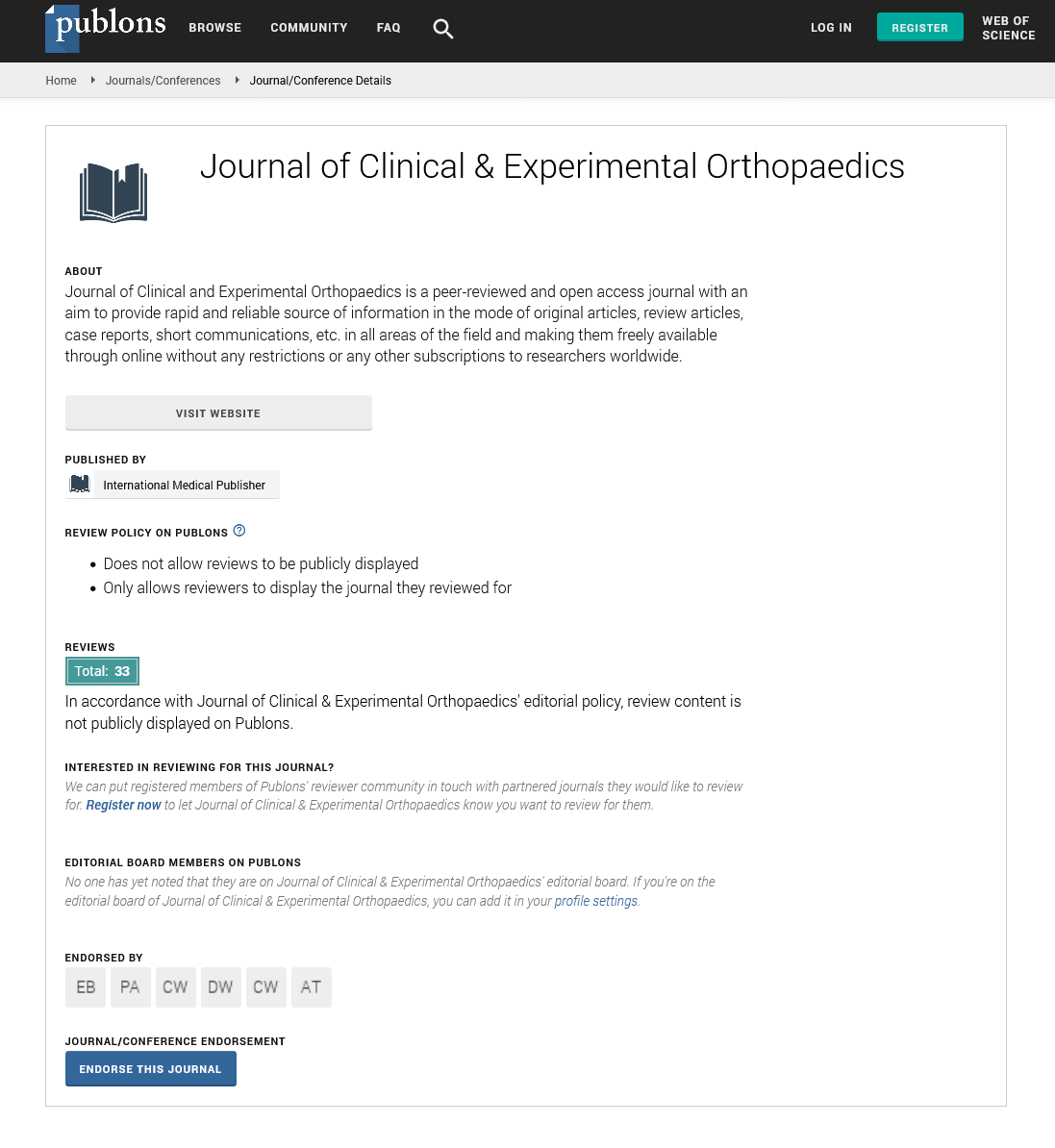ISSN : ISSN: 2471-8416
Journal of Clinical & Experimental Orthopaedics
The sigmoid notches of the proximal segment of ulna: inferential morphometry and volumetry
European Conference on Orthopedics and Osteoporosis
November 29-30 , 2018 Amsterdam , Netherlands
Al-Imam A and Sahai A
College of Medicine-University of Baghdad, Iraq University of Hertfordshire, United Kingdom Dayalbagh Educational Institution, India
Posters & Accepted Abstracts: J Clin Exp Orthop
Abstract
Objective: The elbow joint is compound joint that can be affected by several pathologies that may require medical and surgical interference. This experimental analysis aims to infer data about the morphometry of the proximal segment of the ulna and its articular surfaces represented by the greater sigmoid notch (trochlear notch) and lesser sigmoid notch (radial notch). Methods: A sample of 50 ulnae (n=50, 27 right and 23 left) was studied in connection with the surface area of the sigmoid notches (SA), weight of ulna, and the volume of proximal portion of ulna (the olecranon process down to inferior margin of the radial notch), and the length of ulna (L). Longitudinal dimensional parameters were also studied including; the straight distance between the highest point (tip) of the olecranon and that of the coronoid process (OCD), and the mid-olecranon thickness in mediolateral (T1) and anteroposterior orientation (T2). Results: It is inferred that there were no significant differences in between right versus left ulnae and about the majority of morphometric parameters with an exception for OCD (22.47 vs. 20.75, p-value=0.002). There was a positive correlation in between all the parameters, although the strongest associations were observed in between OCD, the area of the trochlear notch, and the weight of ulna. Conclusion: Key findings of this study are valuable to biomedical engineers, medical professionals including orthopaedic surgeons and rheumatologists, evolutionary biologist, and physical anthropologist. Data from this study apply to (reverse) engineer the perfect implant for the elbow joint.
Biography
E-mail:
tesla1452@gmail.com a.m.al-imam@herts.ac.uk
Google Scholar citation report
Citations : 161
Journal of Clinical & Experimental Orthopaedics received 161 citations as per Google Scholar report
Journal of Clinical & Experimental Orthopaedics peer review process verified at publons
Abstracted/Indexed in
- Google Scholar
- China National Knowledge Infrastructure (CNKI)
- Directory of Research Journal Indexing (DRJI)
- WorldCat
- Publons
- Geneva Foundation for Medical Education and Research
- Secret Search Engine Labs
Open Access Journals
- Aquaculture & Veterinary Science
- Chemistry & Chemical Sciences
- Clinical Sciences
- Engineering
- General Science
- Genetics & Molecular Biology
- Health Care & Nursing
- Immunology & Microbiology
- Materials Science
- Mathematics & Physics
- Medical Sciences
- Neurology & Psychiatry
- Oncology & Cancer Science
- Pharmaceutical Sciences
